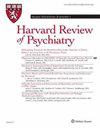From Alchemy to Psychiatry: A Glimpse into the Ethics and Mental Health Practices of Tenth-Century Muslim Physician Abū Bakr al-Rāzī.
IF 3.4
4区 医学
Q2 PSYCHIATRY
引用次数: 0
Abstract
TheIslamic Renaissance saw a flourishing and advancement in philosophy, the natural sciences, the humanities, and many other academic disciplines. Though this era is often confined in the historical literature as ranging from the eighth through thirteenth centuries CE, recent research has considered expanding its timeline to the nineteenth century. The early stages of this period were known for the synthesis of previous traditions that later led to the creation of a new canon of knowledge; this new canon heavily influenced those living within the Islamic empire and also those in Europe. In the early years of the Islamic Renaissance, the physician and philosopher Abū Bakr Muhammad ibn Zakarīyā al-Rāzī was a major figure whose works influenced the course of medicine. While he remains well-known to this day for his writings that later influenced the likes of Ibn Sīnā, many of his contributions to the world of psychiatry remain underappreciated. In revisiting the texts and life of al-Rāzī, what emerges is a portrait of a psychiatrist well ahead of his time and whose methodology brought tradition and innovation together as a means of providing the best care to his patients.从炼金术到精神病学:十世纪穆斯林医生阿布·巴克尔的伦理和心理健康实践一瞥al-Rāzī。
本文章由计算机程序翻译,如有差异,请以英文原文为准。
求助全文
约1分钟内获得全文
求助全文
来源期刊

Harvard Review of Psychiatry
PSYCHIATRY-
CiteScore
7.50
自引率
0.00%
发文量
67
审稿时长
>12 weeks
期刊介绍:
The Harvard Review of Psychiatry is the authoritative source for scholarly reviews and perspectives on important topics in psychiatry. Founded by the Harvard Medical School''s Department of Psychiatry, the Harvard Review of Psychiatry features review papers that summarize and synthesize the key literature in a scholarly and clinically relevant manner. Topics covered include: Schizophrenia and related disorders; Mood disorders; Personality disorders; Substance use disorders; Anxiety; Neuroscience; Psychosocial aspects of psychiatry; Ethics; Psychiatric education; and much more.
In addition, a Clinical Challenges section presents a case with discussion from a panel of experts. Brief reviews are presented in topic-specific columns that include Cross-Cultural Psychiatry, History of Psychiatry, Ethics, and others.
 求助内容:
求助内容: 应助结果提醒方式:
应助结果提醒方式:


